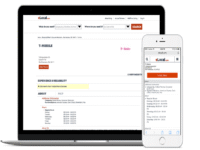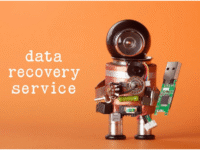Customer Database Software: A Key to Streamlining Business Operations and Enhancing Customer Relationships

In today’s competitive business world, effective customer management is crucial for long-term success. With customer expectations continuously evolving, businesses must adapt their strategies to meet these demands. One of the most valuable tools to ensure that businesses stay organized, responsive, and efficient is customer database software. This technology allows businesses to store, manage, and analyze customer data, improving the way companies interact with their clients.
The Role of Customer Database Software in Business
Customer database software serves as a digital repository for all information related to customers, including contact details, purchase history, preferences, and interactions with the company. By centralizing this data, businesses can easily access important customer information and use it to provide better, more personalized service. This type of software also allows businesses to track customer behaviors and trends, helping them to make informed decisions about marketing, sales, and customer service strategies.
The software typically integrates with other business systems, such as customer relationship management (CRM) tools, email marketing platforms, and sales systems, to create a comprehensive view of each customer. By having a unified platform that consolidates all customer information, businesses can ensure that no detail is overlooked and that they are always up-to-date with their customers’ needs.
Effective use of customer database software not only improves operational efficiency but also fosters stronger relationships with customers. By providing personalized services and anticipating customer needs, businesses can enhance customer satisfaction and loyalty. A happy customer is more likely to become a repeat buyer and recommend the business to others, contributing to long-term success.
Benefits of Implementing Customer Database Software
Implementing customer database software can provide numerous benefits, including improved customer service, increased sales, and better data management. One of the key advantages is the ability to provide personalized customer experiences. When businesses have access to detailed customer information, they can tailor their communications, offers, and recommendations to meet individual preferences. This level of personalization helps businesses build stronger relationships with customers, making them feel valued and understood.
Another significant benefit is the ability to streamline communication. Customer database software enables businesses to send targeted emails, messages, or notifications to customers based on their behavior or preferences. For example, a business can send follow-up emails after a purchase, notify customers about new products, or offer discounts based on previous buying patterns. This targeted communication is not only more effective but also more efficient, saving time and resources for the business.
Customer database software also improves the ability to track customer interactions and behavior. By analyzing purchase history, browsing activity, and customer feedback, businesses can identify trends and patterns that can help refine marketing and sales strategies. For instance, if a customer frequently purchases a specific product, the business can offer related products or services that may interest the customer. With this data-driven approach, businesses can increase sales and improve customer retention.
Another key benefit is enhanced reporting and analytics. Customer database software allows businesses to generate reports that provide insights into customer behavior, sales trends, and overall business performance. This data can be used to evaluate the effectiveness of marketing campaigns, identify areas for improvement, and make informed decisions about future strategies.
How Customer Database Software Enhances Customer Loyalty
Customer loyalty is a major factor in the success of any business. Loyal customers are more likely to make repeat purchases, provide valuable feedback, and recommend the business to others. One of the most effective ways to build and maintain customer loyalty is through the use of customer database software. By tracking customer interactions and preferences, businesses can provide personalized services that make customers feel valued and appreciated.
A personalized approach is key to fostering customer loyalty. For example, when businesses use customer database software to track a customer’s past purchases or preferences, they can send tailored offers or discounts that are relevant to the customer’s interests. This type of targeted communication is far more effective than generic promotions, as it makes the customer feel as though the business understands their needs and wants to provide value.
Moreover, customer database software allows businesses to maintain consistent communication with their customers. By sending personalized emails, birthday offers, or reminders about abandoned carts, businesses can keep their brand top of mind and show customers that they care. This constant engagement helps build a sense of trust and loyalty, encouraging customers to return and continue their relationship with the business.
The ability to resolve customer issues quickly and effectively also plays a vital role in enhancing loyalty. Customer database software allows businesses to track previous interactions, making it easier for support teams to understand the customer’s history and offer tailored solutions. This level of attention to detail helps customers feel heard and valued, which strengthens their bond with the company.
Choosing the Right Customer Database Software for Your Business
When selecting customer database software, it’s important to choose a solution that fits the specific needs of your business. Not all software solutions are the same, so businesses should consider their unique requirements before making a decision. For example, a small business may require a simple database to store basic customer information, while a larger business may need a more robust solution with advanced reporting and analytics capabilities.
One of the first factors to consider is the ease of use. The software should be intuitive and user-friendly so that your team can quickly learn how to navigate and utilize it effectively. The last thing a business wants is a complicated system that requires extensive training and slows down operations. Additionally, the software should integrate seamlessly with other tools and platforms that your business uses, such as email marketing systems, accounting software, and CRM solutions.
Security is another critical consideration when choosing customer database software. Since customer data is sensitive, businesses must ensure that their software solution has strong security features to protect against data breaches and unauthorized access. Look for software that offers encryption, secure access controls, and regular backups to ensure the safety of your customers’ information.
Scalability is also an important factor. As your business grows, your customer database needs may evolve. The software you choose should be able to scale with your business, accommodating an increasing volume of customer data without compromising performance or functionality. Be sure to choose a solution that can grow with your business and continue to meet your needs over time.
Finally, consider the support and resources available with the software. Choose a provider that offers customer support, training materials, and ongoing updates to ensure that you can fully utilize the software and keep it up to date.






